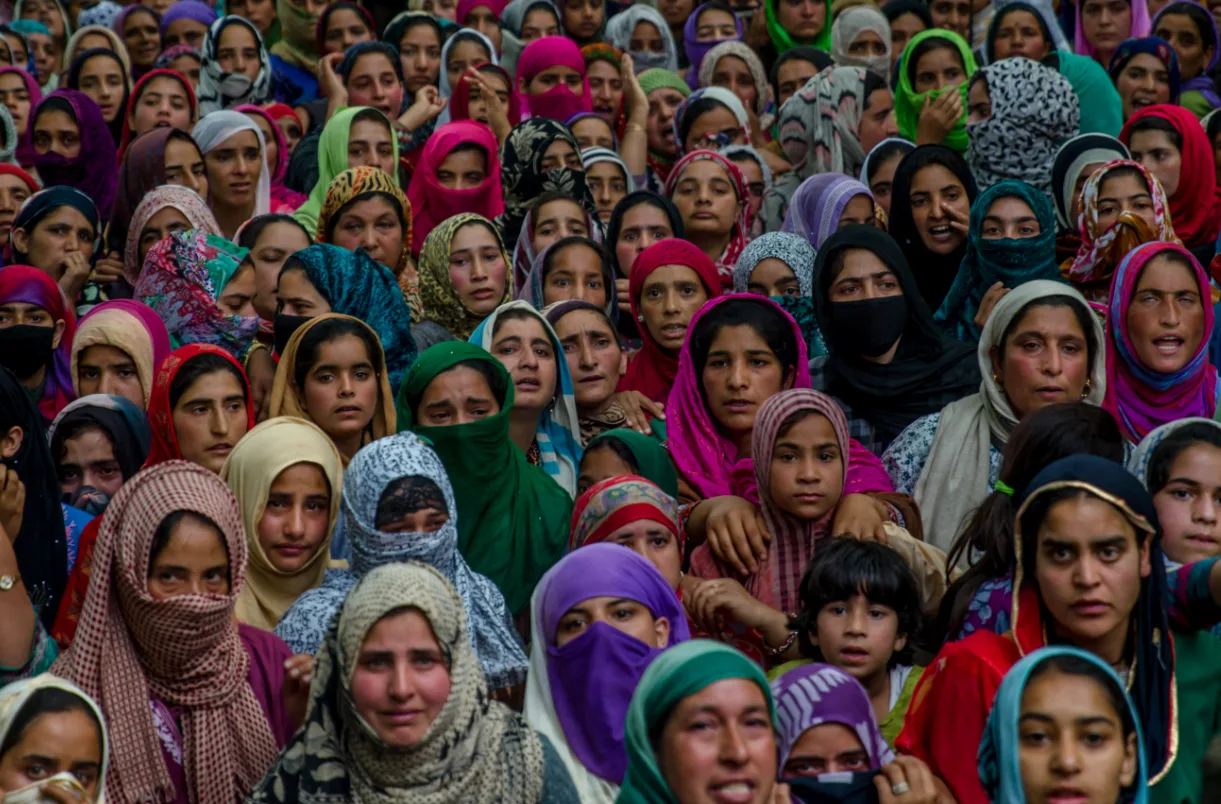Article by Madhura Chakraborty and video by Abid Salaam War
Insha Mir has struggled against patriarchal diktats for over a decade and today captains her college cricket team.
22-year-old Insha Bashir Mir is the captain of the Baramulla Women’s College cricket team. “I have been playing cricket for 12 years. But there’s hardly anyone who would have faced as much discrimination or as many problems as I have in my career”, she says. All these problems stem from the fact that Insha is a girl, supposedly playing a sport meant for ‘boys’.
Insha and her father have long faced taunts and ridicule from their relatives and neighbours for Insha being a girl who not only plays cricket but does other ‘masculine’ things like wearing jeans and going outside the house. When Community Correspondent Abid Salaam War went to interview her, Insha took off her helmet and said, “See I’m wearing the hijab. So what’s the problem now? Why can’t I play?”
Recent exploits of the Indian National Women’s Cricket Team, particularly their stellar performance at the World Cup has finally put the women on everyone’s radar. The International Cricket Council has recently published rankings of individual batswomen and Mithali Raj, the captain of the Indian team, tops the list.
Yet even Raj, despite her celebrity status, faces sexist comments and trolling: from being asked to name her favourite male cricketer to being trolled on Twitter for her clothes. Yet, things are slowly but surely changing. Young cricketing sensation Harmanpreet Kaur, who hails from a small town in Punjab, put women’s cricket in the headlines with her stellar performance against Australia in July this year. Since then, girls have swelled the ranks of cricket academies in her part of the country.
Insha has one staunch supporter in her father. “I have even compromised with my studies to focus on my cricket. But this has created a lot of problems for my father”, she adds. Bashir Ahmad Mir says he’s been pressurised by relatives since Insha finished her school, to make her conform to more feminine ways of dressing and behaviour.
“For me, the priority has always been her dreams. I feel so proud of her, she has played in and excelled at five National Games. I ask people why is it a sin only for us? Pakistan and Qatar also have women’s cricket teams”. Recently Insha’s team won an inter-university tournament. As the captain, she serves as an inspiration for her team, all aspiring to make it big as cricketers. One of them, Humaira, says Insha is her inspiration: “I want to be like her when I grow up. I beg people, give girls a chance to succeed in life!” she finishes passionately.
Despite her grit and her fighting spirit, Insha cannot but help sometimes give in to despondency. She says, “Who knows if I’ll ever live my dream of playing at the national level”. Poignantly, she sings a ditty, associated with the women’s struggle to live with dignity: bekhauf azaad hai jina mujhe (I want to live fearlessly, free). Azaadi has long been the rallying cry across Kashmir to protest injustice and state repression. But for Insha, azaadi would also include the freedom to play cricket without facing so much opposition.
Also Read: Meet Iqra Rasool: The Young Pace Bowler From Kashmir With Big Dreams
Featured Image Credit: YouTube
About the author(s)
Video Volunteers is a community media organisation that identifies, trains and empowers rural and marginalised people to make films, show the world their reality, assert their rights and become drivers of change. We work across 16 states with over 200 Community Corespondents 63 of whom exclusively work on reporting and taking action on everyday instances of patriarchal discrimination.




